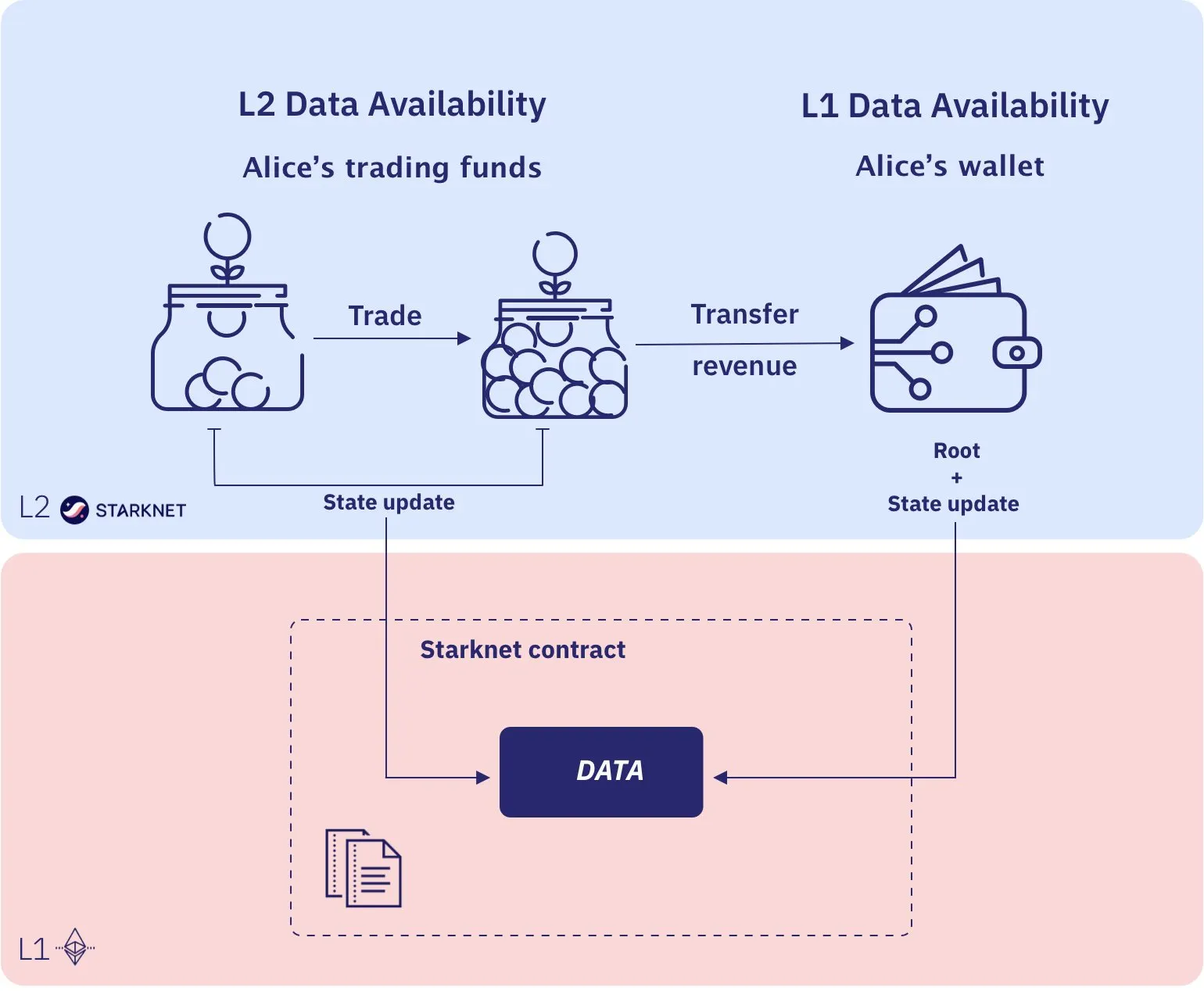Volition, a new StarkWare product for the permissionless Starknet network, promises to drastically reduce Ethereum transaction fees, to the point where the network can support micropayments similar to Bitcoin's Lightning Network.
Set to go live with Starknet v0.13.0 later this year, Volition will "remove the big barrier to microtransactions,” StarkWare CEO Uri Kolodny told Decrypt. “It will finally make the crypto for coffee transactions viable," he said, adding that, "This will be very important for crypto adoption. It will have particular advantages in developing economies.”
Ethereum fees, also known as gas fees, have been a concern for users of the Ethereum network for some time. Despite the network's recent major upgrades, the fees can still be often high, resulting in more challenges for users, particularly those who engage in frequent transactions or use decentralized applications (dapps).
As data from Bitinfocharts shows, Ethereum's average transaction fee, which measures the average fee when a transaction is processed and confirmed, was around $4.80 on June 22—significantly lower than at this year’s peak of more than $27 recorded just last month. But while that's considered reasonable for transactions involving larger amounts, it still represents a major roadblock to mainstream adoption of Ethereum.
Aside from the proverbial crypto for coffee, Volition's developers argue that it opens up a host of other use cases previously not possible in the Ethereum ecosystem.
These include on-chain voting governance applications that would enable decentralized autonomous organizations (DAOs) to vote cheaply, non-fungible tokens (NFTs), or buying in-game assets.
“Volition will make on-chain voting so much more accessible by radically reducing its cost. People missing voting because of high fees—currently common in blockchain—will become a thing of the past,” said Kolodny.
For on-chain gaming, the StarkWare CEO says the new scaling solution “suddenly sets designers free to give a more immersive experience.”
“That’s because you want to offer players all sorts of different assets at different price-points, some of them very cheap," Kolodny told Decrypt. "Today, a five cent asset incurs several dollars in fees; with Volition it becomes viable. Volition will set gaming free,” he said.
Separating data availability
On a technical level, Starknet is a decentralized, permissionless Validity Rollup that operates as a Layer-2 network built on top of Ethereum. It provides an opportunity for any decentralized app (dapp) to significantly enhance its computational scalability without compromising the security features of the Ethereum network. By utilizing Starknet, dapps can achieve increased scale for their computations while leveraging the robustness and security provided by Ethereum's underlying infrastructure.
However, with the introduction of Volition, developers gain the ability to optimize the transaction process by selecting the data availability mode for each individual storage variable. This is achieved by implementing Starknet's state as two separate storage commitment trees: one for Layer-1 data availability mode, which refers to data being available on the Ethereum mainnet, and one for Layer-2 data availability mode, indicating data availability on the Starknet Layer-2.
Data availability on a blockchain refers to the accessibility and persistence of the stored data. In a blockchain, data is typically organized into blocks, which are linked together using cryptographic hashes to form a chain. Each block contains a set of transactions or other types of data.

In public networks, such as Bitcoin or Ethereum, all information is stored on every node, meaning that users end up paying for the burden this puts on every block forever as everything you do is saved forever whether you need it or not.
Volition claims to give users the flexibility to store the data in a place where it’s still very accessible, but is distributed less widely. In other words, it implies the option of saving cost by storing data on Layer-2 instead of Layer-1 in instances where high expenditure on data availability isn’t merited economically.
Data availability matters because it allows users to calculate the state of the chain by themselves, enabling them to continue transacting with their assets even if other nodes in the system stop cooperating.
As explained by StarkWare, the default today is that users always pay for L-1 data availability—which, in turn, bloats transaction fees for small-value transactions. That’s why Volition pushing the data for these transactions to Layer-2 paves the way to micro-transactions: the functionality enables developers—and eventually users—to pick and choose exactly when they want to use cheaper or more expensive on-chain storage options.
StarkWare claims that this could reduce gas fees by up to 90%.
According to StarkWare, this is a feature the wider blockchain community has been talking about for some time. It all comes down to giving users a finer degree of control.
For example, developers can seek compromises by weighing their security and cost requirements on a case by case—or even hour by hour—basis, before deciding on the right data availability solution.
Another possible use case for Volition is trading at a decentralized exchange (DEX); it could help traders reduce fees by keeping funds on the Layer-2 level, and moving funds to the Layer-1 level when they hit a high amount, making security a priority for the DEX.
First used on StarkEx, a permissioned version of Starknet tailored for use by protocols, Volition is expected to go live on Starknet in the third quarter of 2023.

